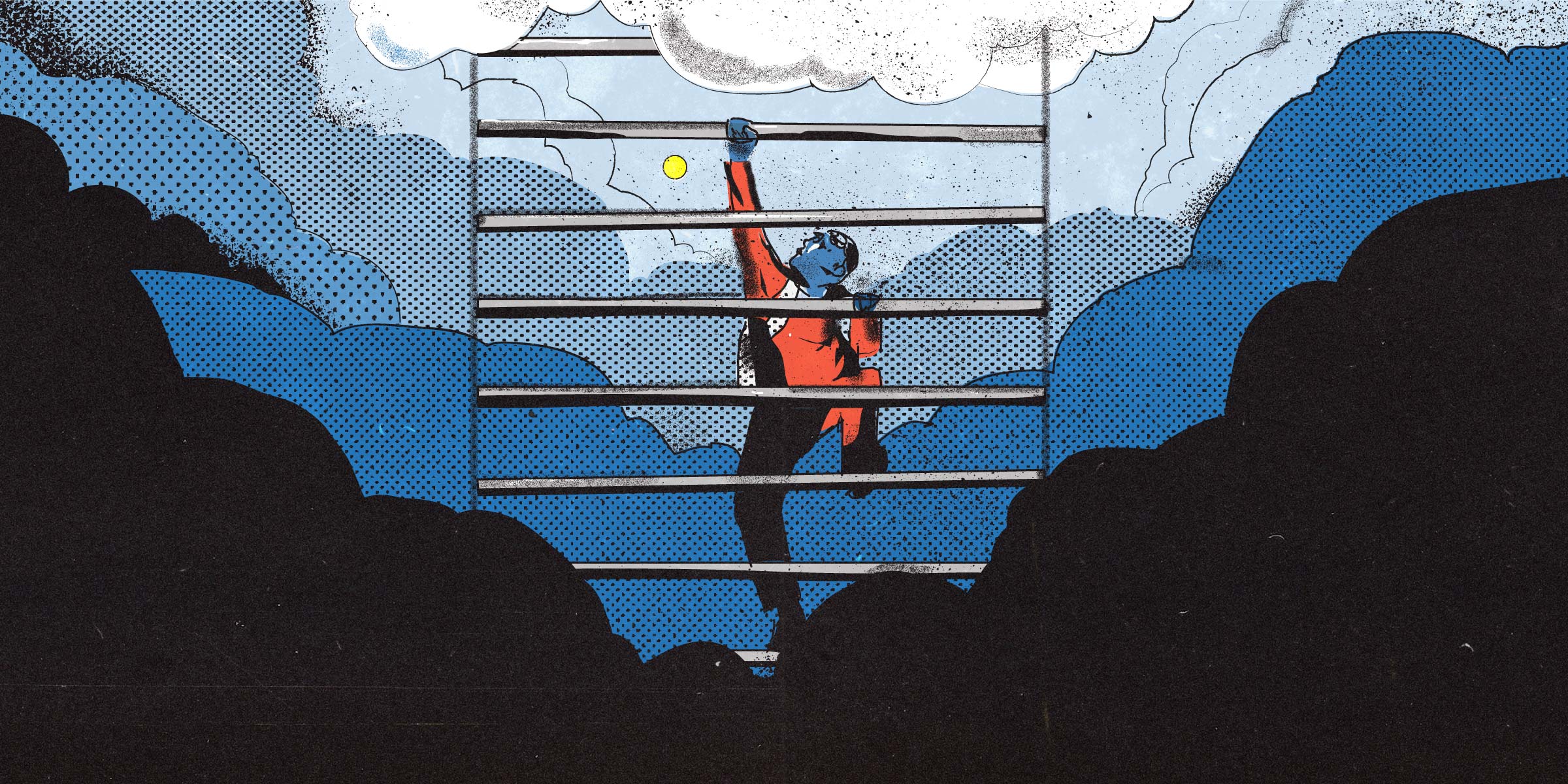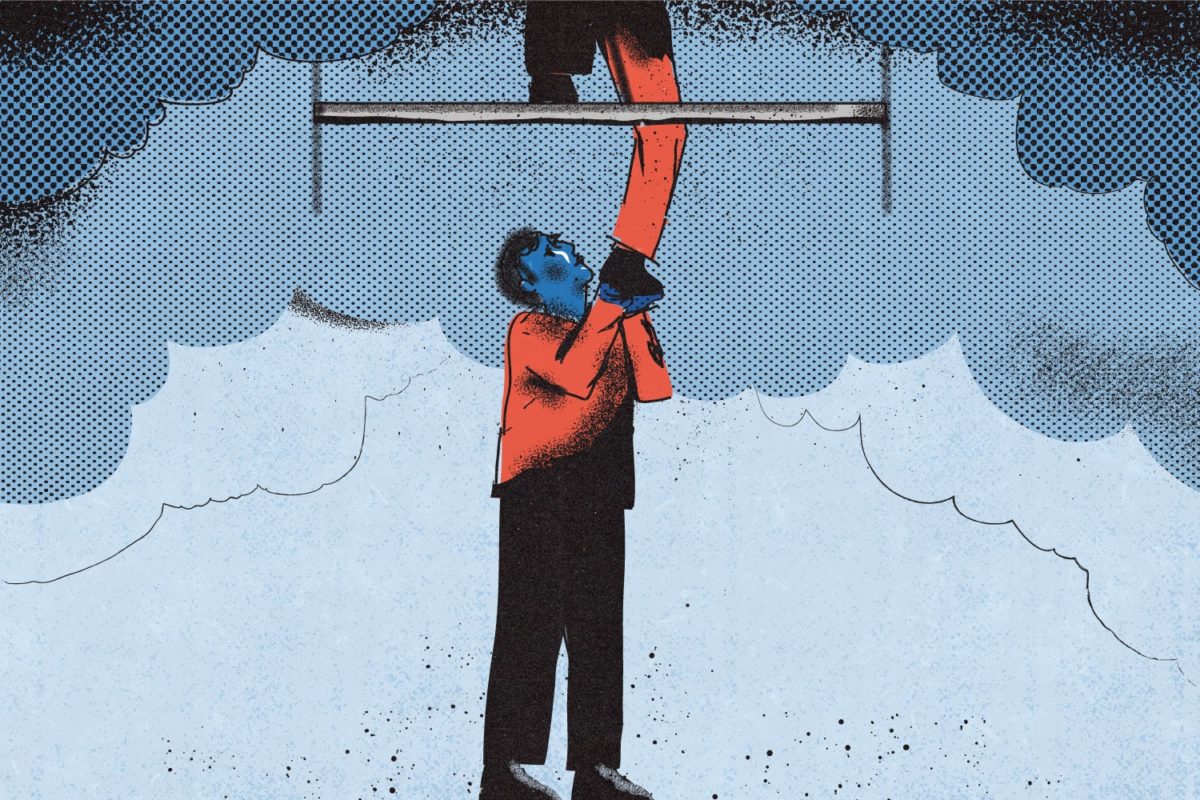I Killed My Brother When I Was 17. Now I’m Saving Lives In Prison.
Cayce French, who is serving life in prison at the Oregon State Correctional Institution, describes how getting clean and participating in rehabilitation programs has transformed his identity.

“Left Behind,” a collaboration between The Appeal and Oregon Justice Resource Center, presents firsthand accounts of growing up in prison from individuals sentenced as children to 25 years-to-life. Inspired by the Supreme Court’s ruling in Miller v. Alabama, which prohibits the imposition of a mandatory sentence of death in prison for children, this series reveals the humanity of those given life sentences by asking: What obligations do we have as a community of not leaving them behind? Each of the primary authors is incarcerated in the Oregon state correctional system.
This is what a guilty conscience feels like: It is debilitating and mind-altering. The stings of conscience are far worse than any other pain. You probably think you know what shame is like—and maybe you do, a little. But the severity of my crime brought with it a toxic shame that very few people can ever understand.
You see, at the age of 17, I was sentenced to life with a 25-year minimum for a horrendous and shameful crime. The person I killed was my own brother. He was the last person left in my immediate family who cared about me.
The year before, I had lost my mother and was officially an orphan. Becoming an orphan was the most painful thing that happened to me as a child. As a result of that trauma, I had fooled myself into thinking that the only family I could find would be among criminals, gangsters, drug dealers, and people addicted to drugs.
I was delusional. I couldn’t see that my brother wasn’t trying to bully me, but rather to mentor me because he wanted me to have a better life than he did. He wanted me to stay clean and not sell drugs like he did. He wanted me to exercise, educate myself, and find a job.
But let me tell you, clarity arrived when it was too late to undo my crime. At 19, I started to ask myself some big questions: What is the meaning of my life? Why was I born? Do others value me? Would the world notice if I disappeared? These questions surfaced as the toxic shame I had been bottling up for so long overwhelmed me.
I had always been on and off different levels of suicide watch since my days in juvenile hall and I was still struggling. Around this time, I was in a secure intensive treatment program for youth at MacLaren Youth Correctional Facility in Woodburn, Oregon, which was basically a mandatory segregation unit for juvenile lifers. I got caught saving up my meds for my absurd ritual weekend high, which I got from taking 1,000 milligrams of trazodone. This same drug had been almost lethal for a friend of mine weeks earlier.
I was on disciplinary status and my privileges were restricted, so I had plenty of time to spend with my shame. The shame didn’t come from getting caught, but from an instinctive horror at what I had done. It was time to hold myself accountable—or die—because the shame was killing me. No one had forced me to skip school every day. No one had forced me to abuse ecstasy and commit crimes that would get me more drugs. No one had forced me to ignore my conscience. And no one had forced me to shoot my own brother.
Until that point, I had made the wrong choices because childhood neglect and drug abuse had clouded my thinking. Now, I had to ask myself what my family would want me to do. I still had various types of medication stashed in my sweatpants. Drug addiction had devastated everyone in my family in some way and was a contributing factor in my crime. Getting clean seemed like the logical next step. I felt that I owed my family and my victims this much, so I walked to the bathroom and flushed my drugs down the toilet. I was elated. From that day forward, I was determined to walk a different path: a path of greatness.
I made that first step by myself. However, I was comforted to know that I was not alone. People cared about my well-being and wanted to help me, just as my brother had tried to do. The counselors, volunteer mentors from the outside, and mentors on the inside at MacLaren guided me as I pursued self-improvement. I stopped hanging out with the wannabe gangsters at MacLaren who talked about drugs, guns, rival gangs, and ruthless ways to make a quick buck, and started spending my time more intentionally by observing the long-timers who seemed to know what they were doing. I hoped their good influence would rub off. I also talked with them about the college classes we wanted to take, the jobs we wanted to get, the families we wanted to start one day, and the regret we felt about our pasts. This atmosphere starkly contrasted with that of my previous group.

The combination of growing up and these new relationships transformed my identity. I was in my 20s and among the oldest. I began to feel a sense of responsibility toward the next generation and a desire to “pass the torch.” Four of my friends and I were given a chance to mentor a previously abused 14-year-old. It was tough. He had behavioral and emotional issues and I couldn’t see that I was having much of an influence. Things didn’t work out, and he eventually got transferred to adult prison, but I still felt a sense of uplift. I know we helped him feel better, even if he couldn’t show us that by changing his ways. When everyone else gave up on that kid, we did not because we know how bad rejection feels.
Until I got clean, I believed that drugs and the adrenaline rush of crime made me feel good and misguidedly searched for significance through the identity of being a big-time drug dealer or gangster. After getting clean, I realized that helping the next generation of lonely, abused, and dejected teens and young adults made me feel good. Although I was there to help that kid, I think I helped myself even more.
When I was 22, I was transferred out of the secure unit and into the general population. I finally had access to all the resources I didn’t have before, so I signed up for everything: meditation, yoga, nonviolent communication, poetry slamming, music production, college, and more. I also got a job at a dog shelter in a program called “Project POOCH,” which adopts previously neglected shelter dogs at risk of being euthanized and assigns them to youth to train until they receive Canine Good Citizen certification and are ready to be adopted. At that point, I was doing more than mentoring; I was saving lives. Imagine that: Someone who took a life now had the opportunity to save lives. I trained and readied 12 dogs for adoption and eventually mentored new employees. Project POOCH helped me feel stronger and look forward to belonging to a community outside the prison walls should I ever be released.
From what I’ve seen, most juvenile lifers have a budding conscience. We’re reaching toward compassion, accountability, contributing something of value, and significance, even though the parole board may disregard our efforts at rehabilitation and decide that we should stay locked up. Despite this prospect, since I transferred to adult prison, I’ve witnessed men who didn’t have the opportunity to access all the great programs at MacLaren because they were sent straight to adult prison, but still gravitate toward positive mentors and eventually become an example to others. Neuroscientific evidence supports this development: Most people grow out of delinquency as their brains mature. Positive and uplifting relationships deepen their natural progress.
Society may have thrown us away, but our community refuses to let our peers suffer without at least trying to help them. We are all hopeful that if we one day gain our freedom, we can become an even greater resource as volunteers on the outside. Until then, we will not be complacent. We’re doing the best we can with what we have. That is my definition of a meaningful life.
Cayce French is serving a sentence of life in prison. He resides at Oregon State Correctional Institution in Salem. This column was edited by Alice Lundell, director of communication for the Oregon Justice Resource Center.
